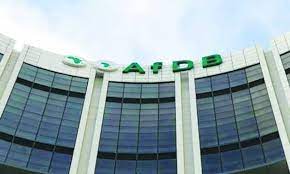… Buhari walking the talk – APC
… Q4 GDP report good news – Experts
Nigeria’s Gross Domestic Product (GDP) grew by 0.11% (year-on-year) in real terms in the fourth quarter of 2020, representing the first positive quarterly growth in the last three quarters.
This is contained in the Nigerian Gross Domestic Product report, published by the National Bureau of Statistics (NBS).
What this means is that the positive growth in real GDP indicates that the Nigerian economy has recovered from the pandemic-induced recession which disrupted economic activities in most part of 2020.
The country looks set to capitalise on this to further boost the economy in subsequent quarters.
According to the report, the growth was largely driven by positive growth recorded in the information and communication sector (15.9%) and agriculture (3.42%).
Some analysts noted that the oil sector plunged by 19.76% (year-on-year) in real terms as against a contraction of 13.89% recorded in Q3 2020.
That the non-oil sector on the other hand grew by 1.69% in real terms, an improvement compared to the contraction of 2.51% recorded in Q3 2020.
It was however slower than 2.26% recorded in the corresponding period of 2019.
According to them, the service sector contributed 54.28% to the GDP in Q4 2020, followed by agriculture, which contributed 26.95%, and industries with 18.77%.
In all, the non-oil accounted for 94.13% while the oil sector accounted for 5.87% of the total GDP for Q4 2020.
Oil sector
The report pointed out that oil sector contracted by 19.76% (year-on-year) in Q4 2020, a downturn compared to a similar contraction of 13.89% recorded in the previous quarter (Q3 2020).
It also represents a decline of 26.12% points when compared to a positive growth of 6.36% recorded in the corresponding period of 2019.
The sector’s contribution to Nigeria’s GDP also reduced to 5.87% in Q4 2020 from 8.73% recorded in Q3 2020 and 7.32% in Q4 2019.
In Q4 2020, average daily oil production of 1.56 million barrels per day (mbpd) was recorded, representing a 6.59% and 22% declines when compared to 1.67mbpd and 2mbpd recorded in Q3 2020 and Q4 2019 respectively.
The decline in the oil sector activity can be attributed to the crash in global crude oil prices, which was triggered by the oil price war between Saudi Arabia and Russia.
Non-oil Sector
The non-oil sector grew by 1.69% in real terms in Q4 2020 and slower than the 2.26% recorded in the corresponding quarter of 2019, but better than the 2.51% negative growth rate recorded in the preceding quarter.
Growth in the sector was largely driven by Information and Communication (Telecommunications & Broadcasting).
Other drivers were Agriculture (Crop Production), Real Estate, Manufacturing (Food, Beverage & Tobacco), Mining and Quarrying (Quarrying and other Minerals), and Construction.
In real terms, the Non-Oil sector contributed 94.13% to the nation’s GDP in the fourth quarter of 2020, higher than the share recorded in the fourth quarter of 2019 (92.68%) and the third quarter of 2020 (91.27%).
Key sectors’ performance:
The agricultural sector, in the fourth quarter of 2020, grew by 3.42% (year-on-year) in real terms, an increase by 1.11% points from the corresponding period of 2019, and an increase of 2.03% points from the preceding quarter which recorded a growth rate of 1.39%.
The sector also contributed 26.95% to the overall GDP in real terms in Q4 2020, higher than the contribution in Q4 2019 but lower than Q3 2020 which stood at 26.09% and 30.77% respectively.
Real GDP growth in the manufacturing sector in the quarter under review stood at –1.51% (year on year), lower than the corresponding period of 2019 and the preceding quarter by 2.75% points and 0.01% points respectively.
The real contribution to GDP in Q4 2020 was 8.60%, lower than the 8.74% recorded in the fourth quarter of 2019 and 8.93% recorded in Q3 2020.
In real terms, the Trade sector contracted by 3.2% (year-on-year) in the fourth quarter of 2020, which was 2.62% points lower than the rate recorded in Q4 2019, and 8.92% points higher than in the preceding quarter.
Trade’s contribution to GDP was 15.46%, which is lower than the 15.99% it represented in the corresponding period of 2019, but higher than the 13.88% recorded in the previous quarter.
Information and communication recorded a growth rate of 14.95% in real terms, an increase of 6.45% points over the corresponding period of 2019.
The sector contributed 15.06% to aggregate real GDP in Q4 2020, higher than the same quarter of the previous year in which it represented 13.12% and higher than the preceding quarter, in which it represented 13.47%.
Inflation
Meanwhile, despite wobbling out of recession, Nigeria’s headline inflation rose to 16.47 per cent in January 2021, while food inflation also rose to 20.57 per cent, from 19.56 per cent in December, according to a report by the statistics bureau earlier in the week.
Inflation soared at 15.75 per cent in December; its highest level in 32 months, with the 0.86 per cent month-on-month increase marking the 16th consecutive month inflation would increase in Nigeria.
Earlier in November, it touched 14.89 per cent.
By implication, despite staggering out of recession, there will be sustained inflationary pressures on consumers’ purchasing power in the coming months, analysts noted.
It’s still good news –Experts
Nigerians have been applauding the fourth quarter GDP report by the NBS , saying it’s indeed a welcome development and good news for the country.
Reacting to the report, Friday Efih, an economist said it was positive for the country’s economic managers.
“It’s an indication that the economic management team is not sleeping. There is
need for the economic team to take advantage of rising oil price (main source of revenue) to stabilize the economy and put it on the path of proper growth,” he told our correspondent.
But a public affairs analyst, Jerome Emmanuel was a bit skeptical when he said that the impact of the exit from recession is only felt on paper.
“Nigeria exits recession for the leaders and politicians, because Nigerians have never felt the impact of exiting the recession. The only impact we feel is electricity tariff increment and increase in pump price.
“Our supposed economic performance is wrapped in political figures. How did the economy grow when all the indicators are on a downward trajectory?” he said.
For political economist and development researcher, Olamilekan Folarin, the Nigeria economy in 2020 practically was a write-off having suffered recession due to contraction from the first quarter to the third quarter.
He expressed optimism that with proper management of the economy, the country would not have to go the recession road again in the near term.
APC lauds Buhari
Reacting to the recession exit report, the All Progressives Congress (APC) said the early exit from recession was as a result of successful implementation of the federal government’s Economic Sustainability Plan (ESP) by President Muhammadu Buhari-led administration.
In a statement signed Thursday in Abuja by the party’s National Secretary of Caretaker/Extraordinary Convention Planning Committee (CECPC) Sen. John J. Akpan Udoedehe, APC said the promise by President Buhari that Nigeria would exit economic recession within a short time has been kept.
“Commendably, Nigeria’s exit from recession is the country’s first growth in three quarters amid the Coronavirus restrictions and consequent economic slowdown. It was not a fluke but as a result of well-planned measures lined up by the federal government to ensure a quick exit.
“The early exit was as a result of among others, the successful implementation of the Federal Government’s Economic Sustainability Plan (ESP) which ensured reflating and stimulating of the economy to prevent business collapse; retaining and creating jobs through support to labour intensive sectors such as agriculture and direct labour interventions; infrastructural investments in roads, rails, bridges; promoting manufacturing and local production as a way of creating job opportunities and pro-poor spending and other social investments targeting the very poor and other vulnerable groups.
“The APC commends stakeholders, particularly the National Assembly, private sector and indeed Nigerians for supporting economic initiatives implemented by the President Buhari’s government to exit recession.
“Nigerians will agree that the past era of profligacy, voodoo economics and waste which brought our economy to its knees are fast fading. With continued support for the President Buhari government, the economy can only get better,” Udoedehe said.




